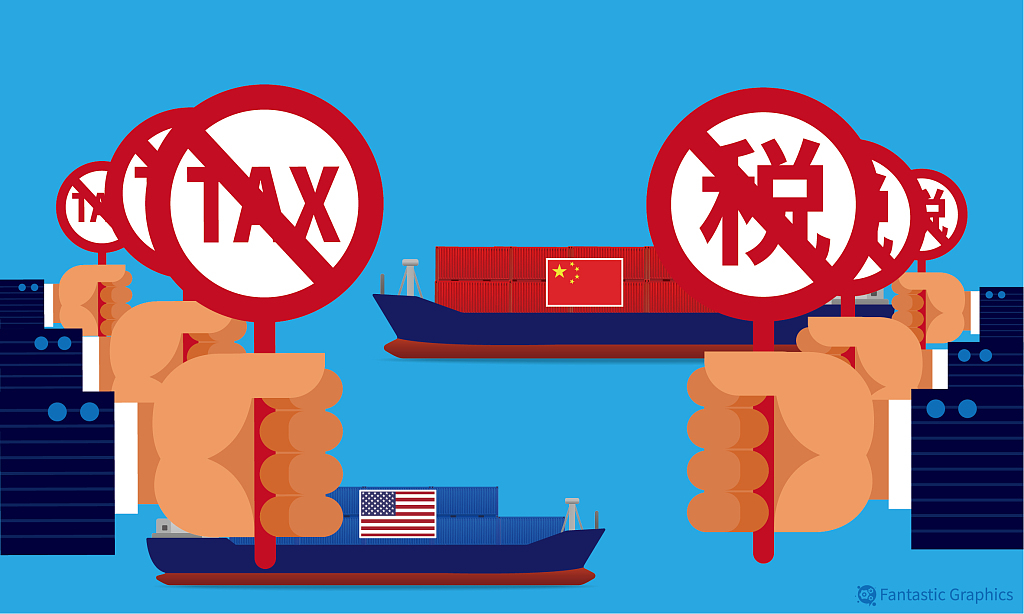
The night view of the second China International Import Expo, Shanghai, November 9, 2019. /VCG Photo
The night view of the second China International Import Expo, Shanghai, November 9, 2019. /VCG Photo
Editor's note: Andrew Korybko is a Moscow-based American political analyst. The article reflects the author's opinions, and not necessarily the views of CGTN.
The second China International Import Expo (CIIE) proved that the country understands its responsibility as a big power to help its partners rise in parallel with it. Unlike the U.S., whose protectionist president is creating ever more barriers to market entry through his regular use of tariffs, China is continuing its policy of opening-up and gradually easing access to the world's second-largest marketplace. The Belt and Road Initiative's (BRI) vision of creating a community of shared future for mankind is driving China's ongoing reforms, whereas Trump's desire to retain American economic supremacy is behind his decision to backtrack on globalization.
To explain, the U.S. used to champion globalization because it believed that market reforms across the world would inevitably lead to political reforms in every other country that would then in turn lead to them looking up to America as the global leader of what would by then be the ubiquitous model of Western liberal democracy. The subtle intent was that the world would then become ideologically subservient to it, thereby enabling the U.S. to indirectly retain its unipolar hegemony under the guise of free markets, the master plan of which failed to materialize after countries like China proudly retained their national political models.
In fact, China was the country most responsible for discrediting this scheme by proving that it's indeed possible to retain one's political model and still develop at a rapid pace through gradual market reforms. The U.S. eventually panicked because it was no longer willing to share the benefits of the globalization system that it founded without obtaining indirect ideological control over its partners as a result, hence its retreat into protectionism, which saw it revealing its original intentions by making direct political demands of its partners in exchange for them securing the right to continue receiving their prior access to the American market.
The American model of globalization therefore only had the superficial appearance of mutual benefits between equal partners when in reality it was just a self-serving ruse for surreptitiously capturing control over the rest of the countries that weren't already under its hegemonic influence, whereas the Chinese model of BRI-driven globalization returns to the spirit of this mutually beneficial model by making the People's Republic of China an equal stakeholder with all others and fulfilling the responsibility expected of it by the international community as one of the world's economic leaders.

China-U.S. trade talks. /VCG Photo
China-U.S. trade talks. /VCG Photo
The juxtaposition of the American and Chinese approaches to trade makes the differences between them even clearer. The U.S. is slamming the door shut on many imports through the imposition of tariffs unless its partners enact certain policies that would give America a competitive advantage over them, while China is opening the door to its partners (many of which are from the developing world) through the CIIE simultaneously with reducing preexisting market barriers through its policy of opening-up in order to encourage the formation of a more complex economic interdependence between them.
The U.S. one-way street inevitably leads to a dead-end for its partners, but China's two-way street leads to countless crossroads of opportunity for all. America is eschewing its responsibility as a big power to assist the rest of the world with rising in parallel to its own growth in order to retain economic supremacy over all of them, while China is embracing its responsibility because it believes that all countries are equal and that everyone should rise together in order to lift the world's remaining population out of poverty and ensure a dignified future for them all.
The U.S. will inevitably isolate itself with time if it continues along its protectionist trajectory, though that might actually be a welcome development since it means that China could more easily replace it as the center of globalization. Seeing as how the U.S. variant of this model only served its own interests at the expense of its partners' economic and political ones, whereas China's vision of globalization is of mutual benefit for all, it's understandable that some in the world might not mind if America clings to protectionism for a little bit longer since it gives the international community more time to redirect global trade toward China instead.
(If you want to contribute and have specific expertise, please contact us at opinions@cgtn.com.)